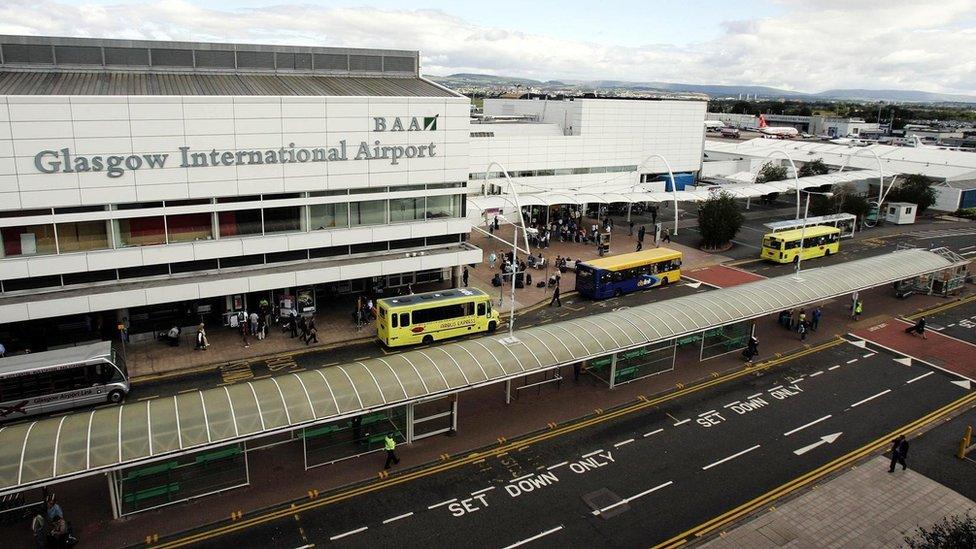Airlines see sharp rise in unruly passengers, says industry group
- Published
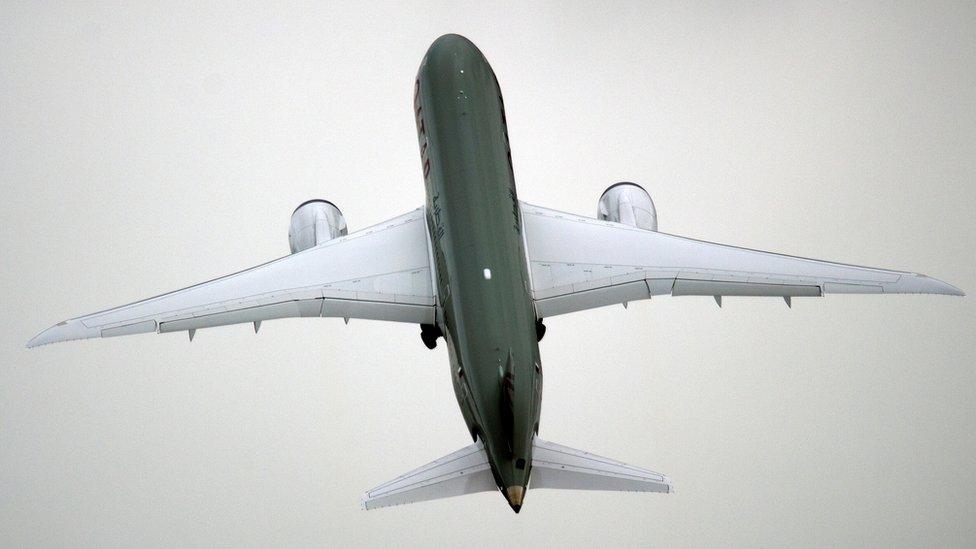
One in every 1,205 flights has an incident with unruly passengers
The number of incidents of unruly behaviour by airline passengers rose sharply in 2015.
Incidents of people getting in fights, being verbally abusive or refusing to follow cabin crew orders were up by 17%, according to the International Air Transport Association (IATA).
Alcohol or drug use was identified as a factor in one in four incidents.
In 11% of cases, there was physical aggression or even damage to the aircraft.
Some 10,854 incidents of passengers disrupting flights were reported to IATA last year, up from 9,316 incidents in 2014. That's one incident for every 1,205 flights.
'Reflective of societal changes'?
The majority of cases were "verbal abuse, failure to follow lawful crew instructions and other forms of anti-social behaviour," IATA said in a statement.
In the cases of alcohol and drug intoxication, in "the vast majority of instances these were consumed prior to boarding or from personal supply".
"The increase in reported incidents tells us that more effective deterrents are needed," said Alexandre de Juniac, IATA's Director General.
Consumer advocates see airlines packing more customers on each plane to increase profits as part of the problem.
IATA assistant director, Tom Colehan, said frustrations with the journey, including long security lines could be triggers.
"I don't think anybody knows exactly the reason driving the rise," he said. "Perhaps it's just reflective of societal changes where anti-social behaviour is more prevalent and perhaps more accepted."
Of the 265 airlines represented by IATA, 40% have diverted a flight in the past 12 months due to an unruly passenger.
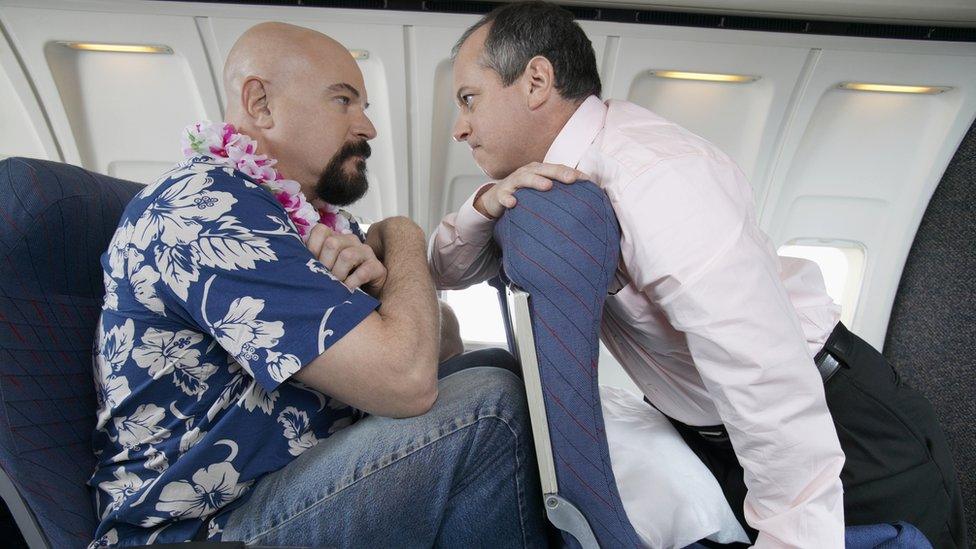
Bad behaviour on planes is on the up
Members of the airline group have called on governments to adopt the Montreal Protocol 2014, which would allow airlines to seek compensation from rowdy passengers.
Currently, people who disrupt a flight can only be prosecuted in the country where the airline is registered - not where it lands.
From fights to opening doors
International airlines have been grappling with the problem of unruly passengers for years.
Earlier this month, British Airways had to divert a flight scheduled to Florida because of a disruptive passenger.
The flight landed in Boston to remove the man accused of "interfering with a flight crew".
Britain's Civil Aviation Authority (CAA) has also seen the number or air rage cases soaring - there were 386 dangerous incidents in 2015, compared with just 85 in 2013.
Examples of incidents quoted by the CAA include disruptive passengers fighting each other and one passenger who had to be restrained during the flight after "progressively disruptive behaviour" before attempting to open the plane door.
In 2015, a Southwest flight in the US had to return to its departure airport for an emergency landing when two passengers got into a fight over reclining a seat.
In the first five months of last year, Chinese aviation authorities saw 12 incidents in which passengers had tried to open emergency exit doors while their aircraft was on the tarmac.
The reasons included wanting fresh air or to smoke a cigarette, the South China Morning Post reported, external.
Industry officials put the price tag of diverting a long-haul flight because of a passenger disruption at around $200,000.
"Of course it is a small minority of passengers that commit these unruly incidents but it has a disproportionate impact," explained Tom Colehan.
- Published18 September 2016
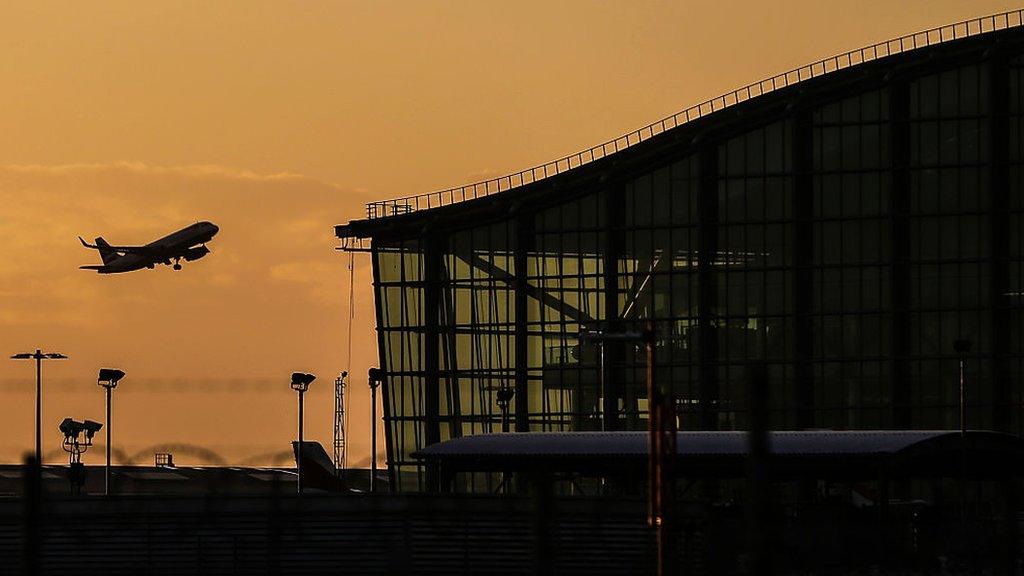
- Published9 September 2016
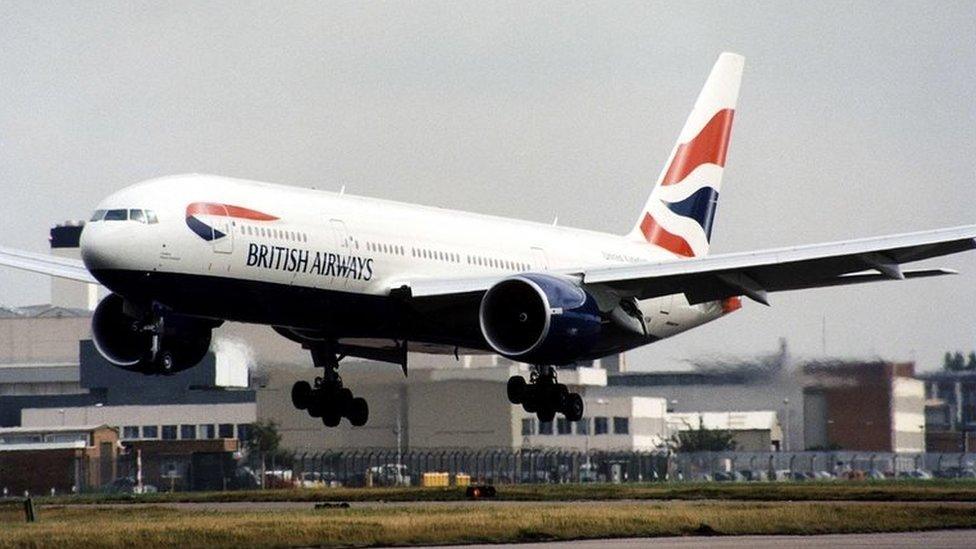
- Published14 September 2016
